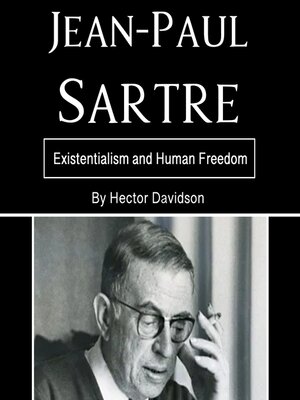
Sign up to save your library
With an OverDrive account, you can save your favorite libraries for at-a-glance information about availability. Find out more about OverDrive accounts.
Find this title in Libby, the library reading app by OverDrive.



Search for a digital library with this title
Title found at these libraries:
| Library Name | Distance |
|---|---|
| Loading... |
Jean-Paul Sartre, a towering figure in 20th-century philosophy, is perhaps best known for his development of existentialism, a school of thought that emphasizes individual freedom, choice, and the creation of meaning in an otherwise indifferent universe. Sartre's philosophy arises from the existentialist tradition but distinguishes itself through its rigorous approach to human freedom and responsibility. At the heart of Sartre's thought is the idea that human beings are condemned to be free, burdened with the constant task of making choices without any external justification or predetermined essence.
Born in Paris in 1905, Sartre's intellectual journey was shaped by early encounters with phenomenology and existential philosophy, especially through the works of Edmund Husserl and Martin Heidegger. However, it was his engagement with phenomenology, along with his studies in literature and politics, that laid the groundwork for his later ideas. Sartre's major philosophical work, Being and Nothingness (1943), is considered one of the central texts of existentialist thought, where he explores the nature of existence, consciousness, and freedom in profound detail.
Sartre's existentialism diverges from traditional metaphysical perspectives by rejecting the notion of an intrinsic human nature or essence. For Sartre, existence precedes essence, meaning that individuals are not born with any predefined purpose or identity; instead, they must create their essence through their actions and choices. This concept places the responsibility for defining oneself squarely on the individual, leading to Sartre's famous assertion that "man is nothing else but what he makes of himself."







